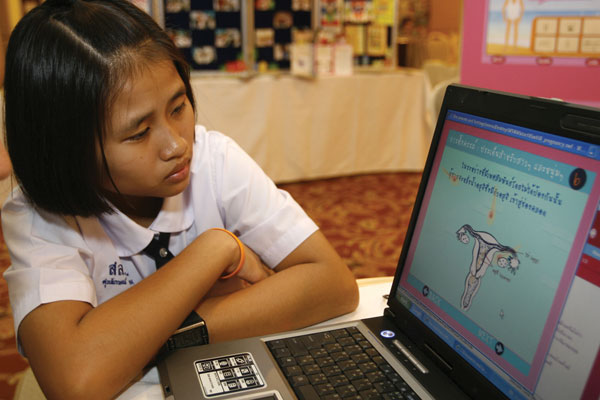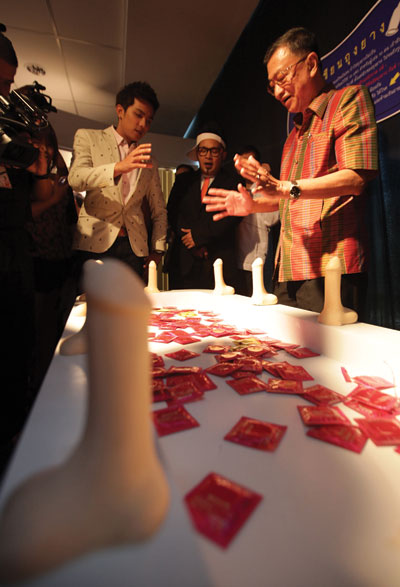Photos courtesy of Bangkok Post
Many Thai students are turning to websites to find information about sexual education and many of them are failing to have safe sex, a recent survey found.
Read the following story from the Bangkok Post to learn more about the findings.
The vast majority of students are getting their sex education from the Internet, and too few are learning enough about safe sex to put theory into practice, a survey has found.

RESEARCH BACKGROUND
The survey interviewed 9,529 people -- 8,837 students and 692 teachers. Of the students, 449 were from vocational schools.
It was carried out in 373 secondary schools and 25 vocational schools across Thailand between September and March by the Centre for Health Policy Studies, Mahidol University.
It received support from UNICEF and was conducted in partnership with the Office of the Basic Education Commission and the Office of the Vocational Education Commission.

INTERESTING RESULTS
The Comprehensive Sexuality Education study revealed the Internet is the primary source of sex education for most students, where more than 90 percent of both males and females receive their information.
This was followed by the movies (56 percent of males and 44 percent of females) and television (47 percent of males and 54 percent of females).
The study added that 80 percent of sex education at school was conducted through lectures and only 20 percent through group discussions or role playing.
RISKY BEHAVIOURS
The study also found that up to 17 percent of general education students engage in sexual intercourse with the number increasing to 40 percent among vocational education students. The average age of a first sexual encounter is at Matayom 2 (Grade 8) level, or 14 to 15 years of age.
Only two-thirds of students said they practised safe sex in their recent sexual activities.
The survey suggests that students do not have adequate skills to practise safe sex and do not learn enough about contraceptive methods to apply what they learn in class to their personal lives.
EXERCISES
Read through the story and decide whether the following statements are true or false.
1. The Internet is the main place students find out about sex. ………….
2. The survey interviewed 9,259 people. ………….
3. According to the survey, about one-third of students said they practised safe sex in their recent sexual activities. ………….
4. The research team didn't interview vocational students. ………….
ANSWERS
EXERCISES
1. True.
2. False.
3. False.
4. False.
primary (adj): main or most important
contraceptive (adj): a drug, device or practice used to prevent a woman becoming pregnant


